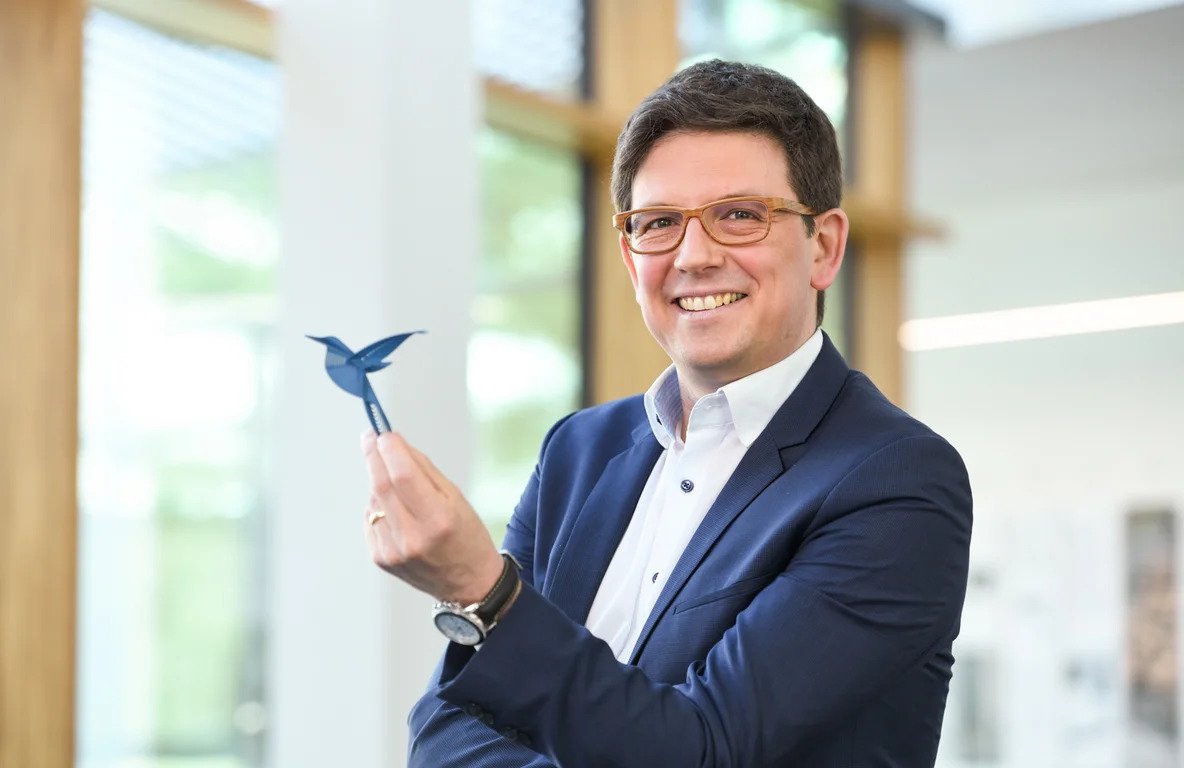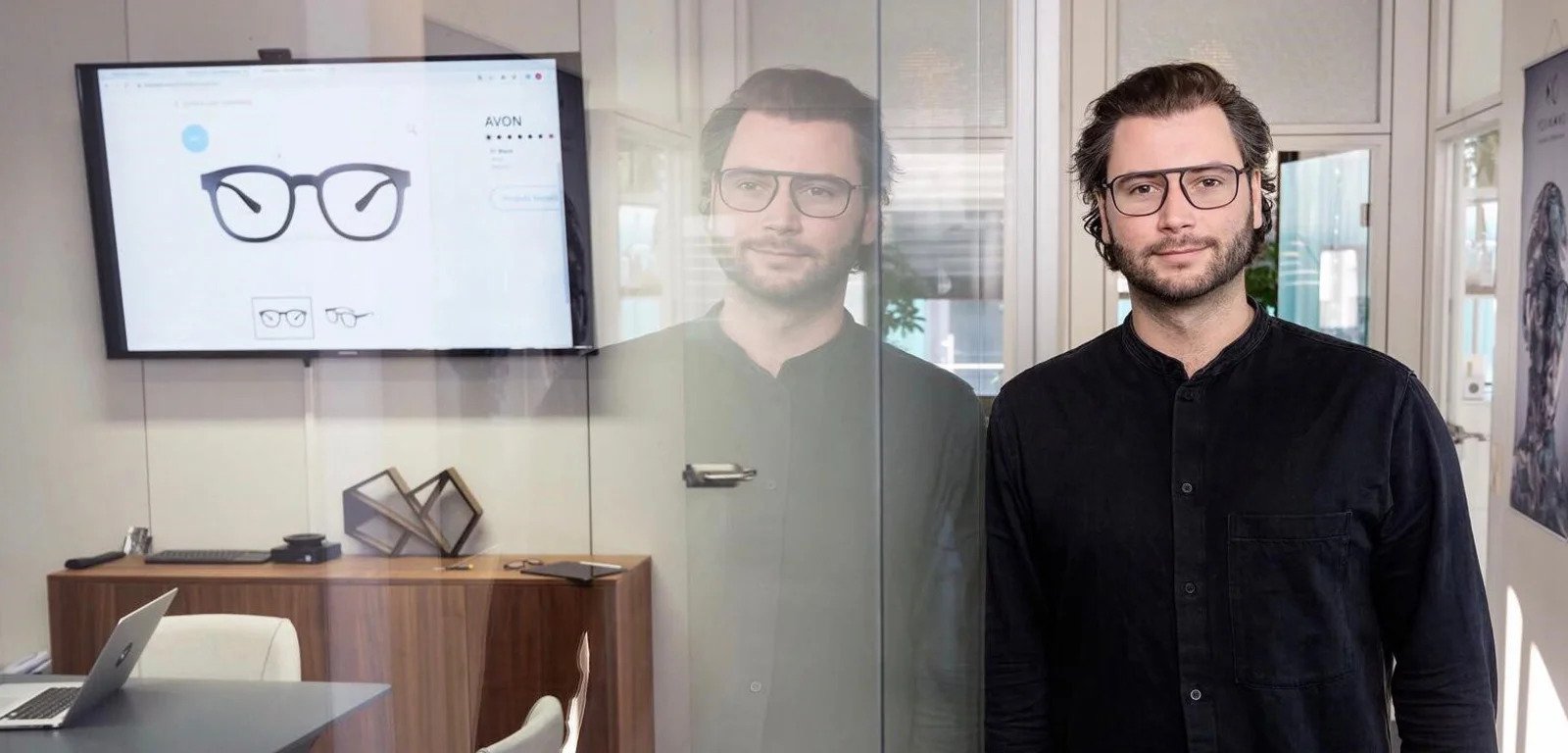A life cycle analysis (LCA) carried out by 3D printer manufacturer EOS and Fraunhofer EMI has revealed significant sustainability benefits of 3D printing eyewear frames over those that are traditionally manufactured.
3D printed eyewear frames manufactured by EOS’ customer YOU MAWO were found to have a 58 percent lower carbon footprint than conventional glasses. The LCA took into account each stage of the production process from material sourcing through to packaging and shipping, and assessed the environmental impacts of both the conventional and 3D printed glasses across 18 different categories.
“We are shaping the future of responsible manufacturing,” said Björn Hannappel, Head of Sustainability at EOS. “Our goal and purpose are to combine pioneering digital innovation in industrial 3D printing and sustainable practices. The LCA we just conducted supports this approach and it proves that EOS is currently offering the most innovative method on the market to produce mass customized eyewear.
“We are proud to partner with YOU MAWO in their passionate journey to offer each person individually optimized and sustainable eyewear.”
EOS’ green credentials
In line with its mission statement “shaping the future of manufacturing”, EOS has been seeking to continually improve its own systems and processes in recent years to reduce energy consumption and improve operational efficiency. One way in which the company is attempting to achieve this is through the development of more bio-based and bio-degradable 3D printing materials to fulfill its zero waste vision.
Upon being appointed CEO of EOS in 2019, Marie Langer pledged that the company would do more with the “positive environmental and social benefits” of 3D printing, in a bid to foster more responsible manufacturing. To this end, the firm is working with its customers to develop more customized, industrial 3D printing applications that offer less material consumption, limit over-production, and reduce waste.
In April, the company announced it had been selected to represent the 3D printing sector as part of the 50 Sustainability and Climate Leaders initiative. The initiative is a climate action-focused project from the international business community that provides companies with a platform upon which they can work to combat climate change.

YOU MAWO’s 3D printed glasses
Founded in 2016, YOU MAWO leverages EOS’ 3D printing technology to produce bespoke eyewear frames for its customer base, which includes some 800 opticians located in 15 countries around the world. The firm deploys specialized 3D scanning software, parametric 3D processes, and EOS’ 3D printing technology to produce frames that are entirely personalized to the wearer.
Together with EOS and Fraunhofer EMI, YOU MAWO has carried out a cradle-to-grave LCA for its 3D printed frames – up until the point of use – in order to compare the environmental impacts of additively and conventionally manufactured eyewear. The study spanned the entire life cycle of the frames, from material sourcing and production to packaging and shipping.
The LCA compared the environmental effects of both eyewear products across a total of 18 impact categories, which assessed factors like climate change, human toxicity, ozone depletion, and water depletion. According to the partners, YOU MAWO’s 3D printed eyewear frames performed “significantly better” than conventional frames in every category.
In particular, YOU MAWO’s 3D printed frames were found to have a 58 percent lower carbon footprint than traditional frames, and also created 80 percent less waste than conventionally produced Acetate frames while avoiding lengthy post-processing.
“Together with EOS, we are creating the future of custom-made, 3D printed eyewear,” said Sebastian Zenetti, Managing Director and Head of Sales at YOU MAWO. “The EOS technology convinced us as it meets our high quality, low scrap rate criteria. It supports our strive for sustainable production and products.
“As the technology enables the design and manufacturing of highly individualized eyewear, it also helps to avoid overproduction, minimize supply chains, and enable on-demand production.”

Improving sustainability further
YOU MAWO set up its production and assembly operations in Germany earlier this year, with all its production equipment, basic materials, and consumables used within its finishing and dyeing processes sourced from the country. The firm’s locations are also all powered by renewable energies, however the study revealed the company could go even further to improve the sustainability of its processes.
One way in which YOU MAWO could do this is by further reducing the powder refresh rate within its production process, and developing bio-based powders with a lower environmental footprint. The LCA suggests the company could also adopt less expensive packaging.
From an EOS perspective, the LCA provided greater transparency regarding the carbon footprint of this particular 3D printed eyewear application. The data generated during the study will help the firm to better understand the key impact factors for achieving more sustainable 3D printing-based production in regards to CO2 emissions, in order to optimize its technology, processes and materials.
“We are happy to have added our expertise in conducting LCAs for this project, as such enabling a scientifically-based study,” said Sebastian Kilchert, Research Associate at Fraunhofer EMI. “It was essential to focus the study on a particular application – in this case the eyewear. The results have been quite surprising, in a positive way.
“We expected a similar environmental impact compared to the investigated conventional manufacturing scenario but learned that additive manufacturing performed much better and had roughly only one third of the environmental impact.”

The burgeoning 3D printed eyewear market
Various companies have been leveraging 3D printing to produce personalized glasses for some time, due to the technology’s inherent flexibility and customization opportunities.
Notable examples include Adidas’ ‘3D CMPT’ sports sunglasses, which are designed to be both lightweight and shock-absorbing, and French eyewear brand MOREL’s novelty velvet-textured glasses, which the firm is reportedly manufacturing in their thousands.
Elsewhere, Materialise has made inroads into optical 3D printing with the acquisition of software developer Ditto, which enabled the development of an online eyewear try-on service.
3D printed ‘smart’ glasses have also garnered recent attention, after prescription lens 3D printing specialist Luxexcel teamed up with Optiswiss to bring 3D printed smart lenses to glasses manufacturers en-masse. The firm had previously made advances in its AR-related offering through a partnership with WaveOptics which saw it begin 3D printing AR prescription smart glasses in February.
Subscribe to the 3D Printing Industry newsletter for the latest news in additive manufacturing. You can also stay connected by following us on Twitter and liking us on Facebook.
Looking for a career in additive manufacturing? Visit 3D Printing Jobs for a selection of roles in the industry.
Subscribe to our YouTube channel for the latest 3D printing video shorts, reviews and webinar replays.
Featured image shows Sebastian Zenetti, Managing Director and Head of Sales at YOU MAWO. Photo via YOU MAWO.



